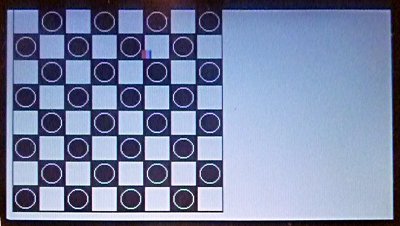Various coders at Cemetech have been hard at work building applications, programs, games, and tools for the Casio Prizm color graphing calculator, which we here at Cemetech feel represents the TI coding community's best option over the crippled TI Nspire CX. Unfortunately, the end of the Spring semester is looming for our college and graduate school students, and the busyness of everyday life continues for our other members, so project progress has been slow, particularly with regards to Direct USB globalCALCnet. Luckily, I'm happy to present two completed Prizm games, two Prizm games in progress, and a wonderful toolkit for writing Prizm programs that will make life even easier for coders.
The previous SDK for developing Prizm C programs is functional, but complex to set up, and several users have encountered confusion and difficulty. Cemetech administrator Jon "TheStorm" "Jonimus" Sturm and long-time user Peter "Tari" Marheine have teamed up to write a full GCC-based toolchain for the Prizm, turning C (and potentially other languages) into .g3a Add-Ins for the calculator. Like GCC itself, it is cross-platform, allowing Windows, Linux, and Mac OS X developers to all write Prizm programs. They have worked very hard on this, including attacking a stubborn bug preventing interrupts from being properly set up, even though neither yet has their own Prizm calculator. We are proud to offer the very first version of the SDK at the link at the end of this article.
Secondly, several Prizm games are complete or in progress. Our extraordinarily productive (newly-minted) administrator Shaun "Merthsoft" McFall has released polished versions of his Minesweeper game and of the classic Conway's Game of Life for the Prizm, both of which are available below from the Cemetech Archives. Global moderator Tanner "_player1537" Hobson has been developing a game of Checkers for the Prizm; the screenshot below is a poor representation of the excellent progress he has made. Finally, Christopher "Kerm Martian" Mitchell, yours truly, has been porting my popular Obliterate game from the TI-83+/84+ series of calculators to the Prizm; you can see screenshots of its full-color splashscreen, menus, and rudimentary gameplay in the [Prizm] Obliterate topic.
I hope that you all with embrace the Prizm, show TI what we can do with an open platform, enjoy programming on a full-color graphing calculator, and show off your C coding skills!
Download
 Prizm GCC-Based SDK by TheStorm and Tari
Prizm GCC-Based SDK by TheStorm and Tari
 Prizm Minesweeper by Merthsoft
Prizm Minesweeper by Merthsoft
 PrizmLife (Conway's Game of Life) by Merthsoft
PrizmLife (Conway's Game of Life) by Merthsoft


Prizm games under development. Left: Checkers by _player1537; Right: Obliterate by KermMartian
The previous SDK for developing Prizm C programs is functional, but complex to set up, and several users have encountered confusion and difficulty. Cemetech administrator Jon "TheStorm" "Jonimus" Sturm and long-time user Peter "Tari" Marheine have teamed up to write a full GCC-based toolchain for the Prizm, turning C (and potentially other languages) into .g3a Add-Ins for the calculator. Like GCC itself, it is cross-platform, allowing Windows, Linux, and Mac OS X developers to all write Prizm programs. They have worked very hard on this, including attacking a stubborn bug preventing interrupts from being properly set up, even though neither yet has their own Prizm calculator. We are proud to offer the very first version of the SDK at the link at the end of this article.
Secondly, several Prizm games are complete or in progress. Our extraordinarily productive (newly-minted) administrator Shaun "Merthsoft" McFall has released polished versions of his Minesweeper game and of the classic Conway's Game of Life for the Prizm, both of which are available below from the Cemetech Archives. Global moderator Tanner "_player1537" Hobson has been developing a game of Checkers for the Prizm; the screenshot below is a poor representation of the excellent progress he has made. Finally, Christopher "Kerm Martian" Mitchell, yours truly, has been porting my popular Obliterate game from the TI-83+/84+ series of calculators to the Prizm; you can see screenshots of its full-color splashscreen, menus, and rudimentary gameplay in the [Prizm] Obliterate topic.
I hope that you all with embrace the Prizm, show TI what we can do with an open platform, enjoy programming on a full-color graphing calculator, and show off your C coding skills!
Download


Prizm games under development. Left: Checkers by _player1537; Right: Obliterate by KermMartian
























